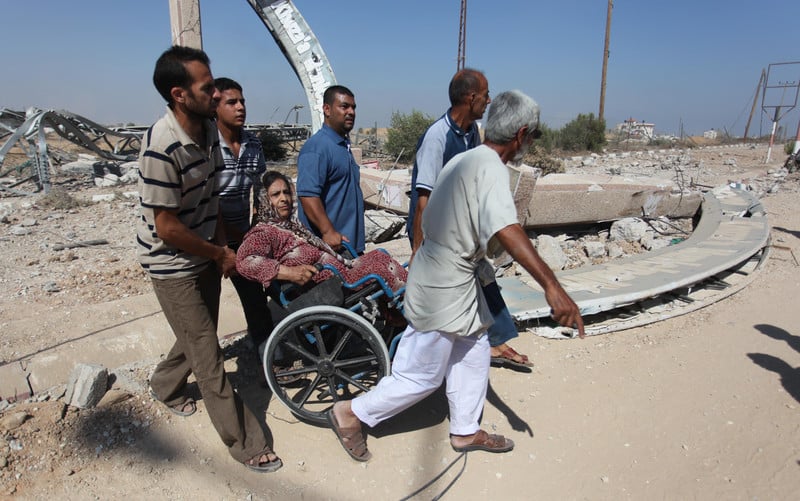GENEVA (20 November 2023) – A UN expert today reiterated growing calls for unconditional and unrestricted humanitarian aid access to the people with disabilities in the Gaza Strip.
The expert emphasised the importance of ensuring aid reaches all civilians and especially those with disabilities who may need assistive tools in addition to food, medicine, and other essential services such as water and sanitation, electricity and healthcare.
“This region has increasing disability rates among the population because of exposure to repeated armed conflicts in addition to the current bombardment of the Gaza strip, and all relief teams and international bodies must take this into account,” said Heba Hagrass, who recently started work as the UN Special Rapporteur on the rights of persons with disabilities.
"People with disabilities have difficulty accessing safe places, and the denial of vital services such as electricity, water, and food exposes people with disabilities to heightened risks including the risk of loss of life,” Hagrass said.
The Special Rapporteur urged parties to the conflict to consider the situation of persons with disabilities when conducting hostilities, including warnings of attacks, especially as safe and accessible means of transportation and assistive tools are lacking to flee danger. “Relief workers and agencies engaged in humanitarian support to Gaza must also be provided with adequate resources to ensure that the needs of people with disabilities are taken into account in this context,” the expert said.
“People with disabilities must not be “left behind” because their families and relief teams are unable to give them the necessary support,” Hagrass added.
She warned that the way military operations are being conducted has catastrophic consequences for all civilians, including people with disabilities, violates the UN Convention on the Rights of Persons with Disabilities -Article 11-, and goes against Security Council Resolution No. 2475 (2019) on protecting persons with disabilities during armed conflicts.
“Nothing is more urgent than an immediate ceasefire and end to hostilities by all parties, to ensure the protection and safety of civilians, including people with disabilities,” Hagrass said. The Special Rapporteur also underscored the need to ensure the unconditional release of all hostages and arbitrarily detained individuals, especially persons with disabilities.
Special Rapporteurs are part of what is known as the Special Procedures of the Human Rights Council. Special Procedures, the largest body of independent experts in the UN Human Rights system, is the general name of the Council’s independent fact-finding and monitoring mechanisms that address either specific country situations or thematic issues in all parts of the world. Special Procedures’ experts work on a voluntary basis; they are not UN staff and do not receive a salary for their work. They are independent from any government or organization and serve in their capacity.


